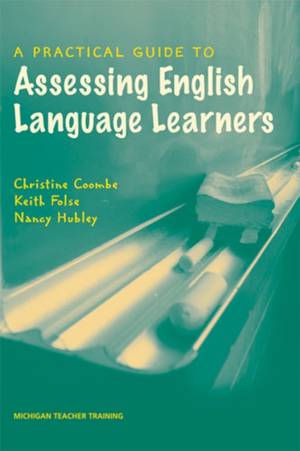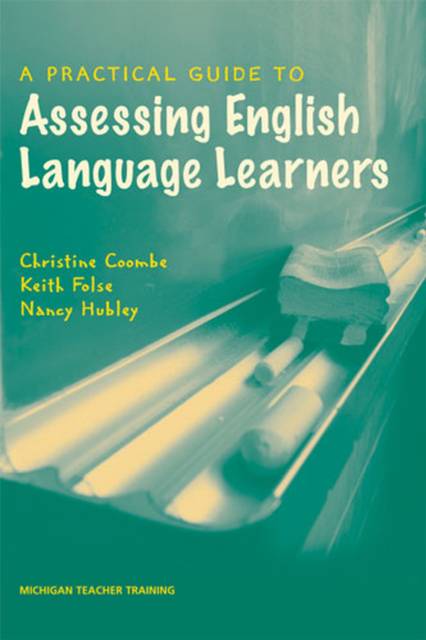
- Afhalen na 1 uur in een winkel met voorraad
- Gratis thuislevering in België vanaf € 30
- Ruim aanbod met 7 miljoen producten
- Afhalen na 1 uur in een winkel met voorraad
- Gratis thuislevering in België vanaf € 30
- Ruim aanbod met 7 miljoen producten
Zoeken
A Practical Guide to Assessing English Language Learners
Keith S Folse, Nancy Hubley, Christine Coombe
Paperback | Engels
€ 34,95
+ 69 punten
Omschrijving
For many teachers of English language learners, the field of assessment is foreign territory. Assessment has its own culture, traditions, and terminology. This training guide is intended to help classroom teachers become more comfortable creating and using assessments. A Practical Guide to Assessing English Language Learners provides helpful insights into the practice and terminology of assessment. The text focuses on providing the cornerstones of good assessments--usefulness, validity, reliability, practicality, washback, authenticity, transparency, and security--and techniques for testing. It devotes a chapter to the assessment of each of the four main skill areas (reading, writing, listening, and speaking), and also covers placement testing, such as using TOEFL(R) and MELAB, diagnostic testing, evaluation, and instructional decision-making with regard to testing. Tips to improve students' test-taking strategies are offered, and each chapter ends with a helpful list of Ten Things to Remember, as well as informative case studies featuring two teachers and their assessment decisions. Incorporating its own principles, A Practical Guide to Assessing English Language Learners opens with a short quiz for the reader called Are You Testwise? that quickly determines how each teacher will benefit from this indispensable guide.
Specificaties
Betrokkenen
- Auteur(s):
- Uitgeverij:
Inhoud
- Aantal bladzijden:
- 232
- Taal:
- Engels
Eigenschappen
- Productcode (EAN):
- 9780472032013
- Verschijningsdatum:
- 1/03/2007
- Uitvoering:
- Paperback
- Formaat:
- Trade paperback (VS)
- Afmetingen:
- 175 mm x 251 mm
- Gewicht:
- 476 g

Alleen bij Standaard Boekhandel
+ 69 punten op je klantenkaart van Standaard Boekhandel
Beoordelingen
We publiceren alleen reviews die voldoen aan de voorwaarden voor reviews. Bekijk onze voorwaarden voor reviews.











